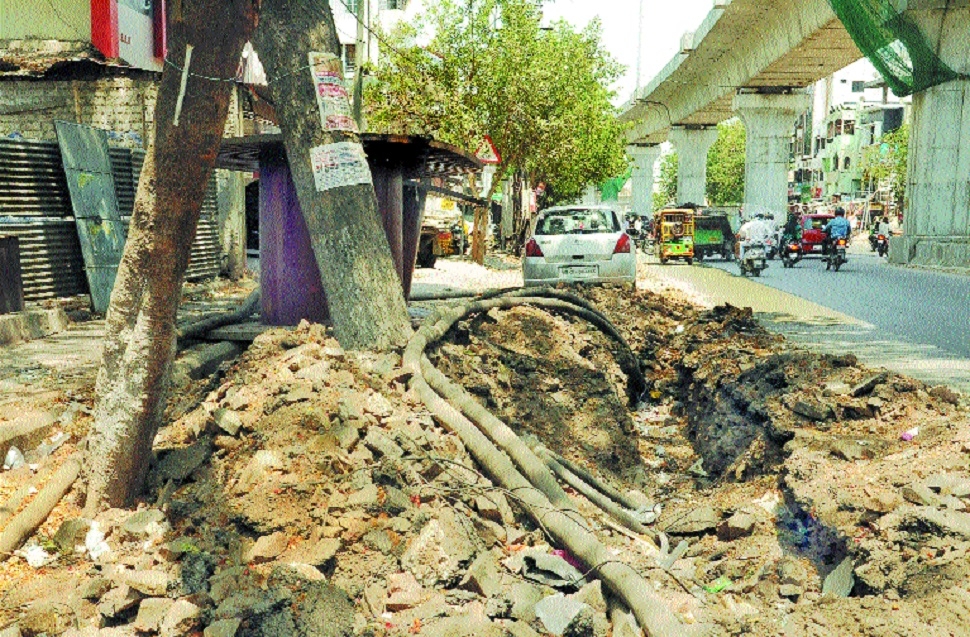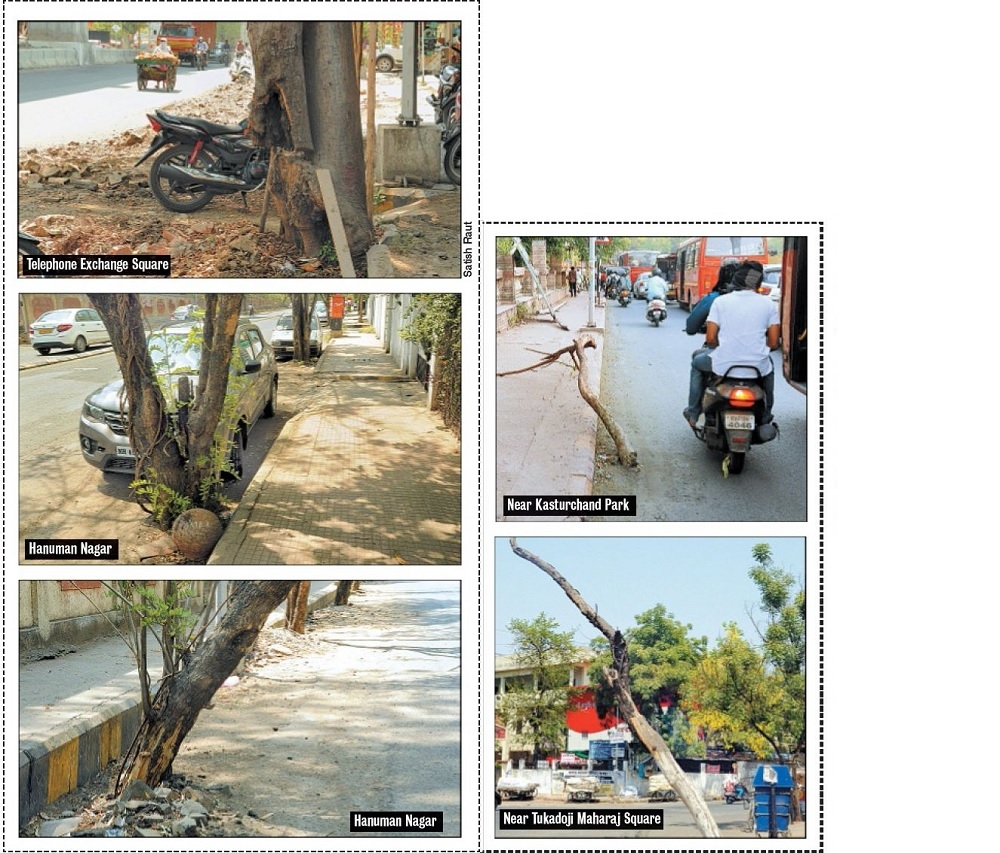Trees are likely to die due to compaction: MSS’ report
| Date :26-Apr-2019 |

By Vikas Vaidya:
Due to widespread concretisation of city roads, percolation of rain water would be adversely affected, which is likely to impact groundwater reserves in a very big way leading to larger environmental hazard, the survey revealed
Compaction due to concretisation within the tree’s root zone is likely to adversely affect the tree. Trees are likely to die due to such compaction. However, in most places, no scientific effort is visible in order to provide anti-choking at the root base of the existing trees so as to protect them from slow death. This is likely to adversely affect the green cover in Nagpur city. These are the findings of the survey conducted by Community Action For Environment (CAFE) of Matru Sewa Sangh (MSS) Institute of Social Work at Bajaj Nagar.

The Institute has conducted rapid appraisal study on ‘Impact of Concretisation of Roads on Urban Environment of Nagpur’. Dr John Menachery, Principal of the College explained, “The Community Action For Environment - CAFE is a field Action Project of the Matru Sewa Sangh Institute of Social Work. Under the aegis of CAFE, a ‘rapid appraisal study’ was conducted on the ongoing concretisation of roads in Nagpur city during the first week of March 2019.
The findings of the survey are shocking and need to be given a deep thought.” The objectives of the study included n To physically observe the kind of laying of interlocking tiles by the sides of roads that are being concretised in Nagpur city n To physically observe the kind of efforts being taken to ensure protection of existing avenue trees by the sides of roads that are being concretised in Nagpur city
To physically observe the kind of efforts being taken by the authorities in providing pits for tree plantation by the sides of roads that are being concretised in Nagpur city n To physically observe the kind of efforts being taken by the authorities in providing soak pits for rain water harvesting by the sides of roads that are being concretised in Nagpur city. Other findings include Municipal administration has failed to incorporate measures to mitigate the adverse effects of concretisation on the tree cover and ground water table of Nagpur.
There has been no effort to incorporate permeable pavement into the design. The laying of interlocking tiles by the sides of concrete roads has been done in a very unscientific manner by fixing such tiles on a bed of concrete, thereby making it non-permeable. There have been no visible efforts for the provision of pits for future tree plantation by the sides of roads that are being concretised. Had such pits been provided at regular intervals, it would have been possible to undertake tree plantation in the future. This will be a major set-back for increasing the tree cover of Nagpur, the finding warns. There have been no visible efforts for providing soak pits for rain water harvesting by way of percolation by the sides of roads that are being concretised in Nagpur city.
The large scale concretisation will prevent percolation of rain water in a big way, as the administration has failed to incorporate measures for rain water harvesting as part of concretisation of roads. Without adequate percolation, the ground water table is likely to further deplete, the survey says. The team that conducted survey expressed its fear in the report-- due to widespread concretisation of the city roads, the percolation of rain water would be adversely affected, which is likely to impact the ground water reserves in a very big way. Suitable steps need to be taken to mitigate this environmental hazard. Due to concretisation of roads, the existing trees are likely to die due to choking as the entire surface area over the roots has been covered with concrete. Besides, the new concrete surfacing has not provided for pits for tree plantation.
As a result of this, new saplings for avenue trees cannot be planted on such concrete roads. Suitable steps need to be taken to mitigate this environmental hazard, says report. “CAFE had deployed teams of volunteers (students and faculty of MSSISW) which had physically travelled on as many roads in Nagpur city where concretisation was going on, or where concretisation has been completed, and made observations focussed on the four objectives of the study. The teams travelled on most of the roads in the city during the first week of March 2019 and gathered data,” informed Dr John Menachery.